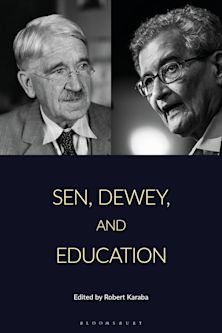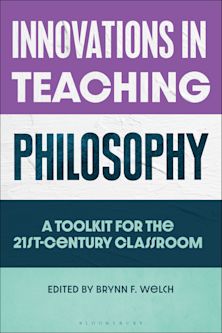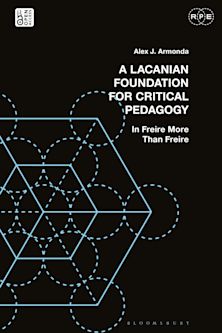Critical Perspectives on Teaching in the Southern United States
Critical Perspectives on Teaching in the Southern United States
This product is usually dispatched within 1 week
- Delivery and returns info
-
Free US delivery on orders $35 or over
Description
Critical Perspectives on Teaching in the Southern United States presents provocative insights into education in the Southern United States, from the perspective of educators. This book foregrounds the Southern United States’ unique sociopolitical, sociohistorical, and sociocultural contexts which directly influence knowledge and classroom pedagogies. Contributors use critical frameworks that coalesce around methods including: self-reflection, social justice, and culturally responsive/relevant/sustaining, and asset-based pedagogies. Chapters explore salient topics such as race, language, gender, discrimination, identity, immigration, poverty, social justice, and their influence(s) on pedagogy. This book raises complex questions considering how history has shaped present-day education in the Southern U.S. context.
Table of Contents
Chapter 1: Introduction: The Sociohistorical Context of Public Education in the Southern United States-Natalie Keefer and Tori K. Flint
Chapter 2: Theorizing Education and Human Rights in the Southern United States-Natalie Keefer
Part 2: Reflections from the Field
Chapter 3: Through their Eyes: Promoting Voice and Multiple Perspectives to Facilitate Social Justice Advocacy in the South-Gregory L. Samuels and Brandon J. Haas
Chapter 4: ‘Unscripting’ the Curriculum: A Teacher’s Reflections on Moving toward Culturally Relevant Pedagogy-Allison M. Bernard and Tori K. Flint
Chapter 5: Disrupting the Silence: Teaching about Racism in Higher Education in the Deep South-Amy Samuels
Chapter 6: “It’s Like Boiling a Frog": Deintellectualization and Devaluation through the Eyes of a Black Woman Academician in the Deep South-Valin S. Jordan
Chapter 7: Swimming Against the Current in a Sea of Low Expectations: Louisiana Teachers Building Their Own Professional Capital-Melissa A. Gallagher and Catherine J. Melancon
Chapter 8: Politically Charged Classroom Conversations: A Duoethnographic Exploration of Teaching in a Swing State-Andrea Watson-Canning and Sarah M. Denney
Part 3: Pedagogy and Content
Chapter 9: “It Hasn’t Happened Yet, It Hasn’t even Begun Yet”: Teaching about Southern Politics-Mark Pearcy and Jeremiah Clabough
Chapter 10: “Isn’t it peachy?”: The Successes and Pitfalls of Teaching Complicated Topics in 8th Grade Georgia Studies-Scott L. Roberts, Brandon M. Butler, Charles J. Elfer, David T. Kendrick, and Valerie Widdall
Chapter 11: Real Stories, Real People: Foot Soldiers Laboring for the Civil Rights Movement in Alabama-Janie Hubbard and Cory Callahan
Part 4: Borders and Boundaries: Language, Immigration, and Identity
Chapter 12: A Self-Study through Video Portraiture: The Emotional Dimensions of Funds of Knowledge in the Southeastern Borderlands-Eliza D. Butler and Jessica Espinosa
Chapter 13: “In school I really feel American”: Complicating American Identity-In-Practice in a Rural Southern Elementary School-Matthew M. Green
Chapter 14: “The New Diversity Challenge”: Exploring Louisiana Educators’ Preparedness to Teach English Learners-Maria Isolina Bravo-Ruiz
Appendices
About the Contributors
Product details
| Published | Oct 21 2020 |
|---|---|
| Format | Hardback |
| Edition | 1st |
| Extent | 258 |
| ISBN | 9781793614124 |
| Imprint | Lexington Books |
| Illustrations | 5 tables |
| Dimensions | 9 x 6 inches |
| Publisher | Bloomsbury Publishing |
Reviews

ONLINE RESOURCES
Bloomsbury Collections
This book is available on Bloomsbury Collections where your library has access.



































